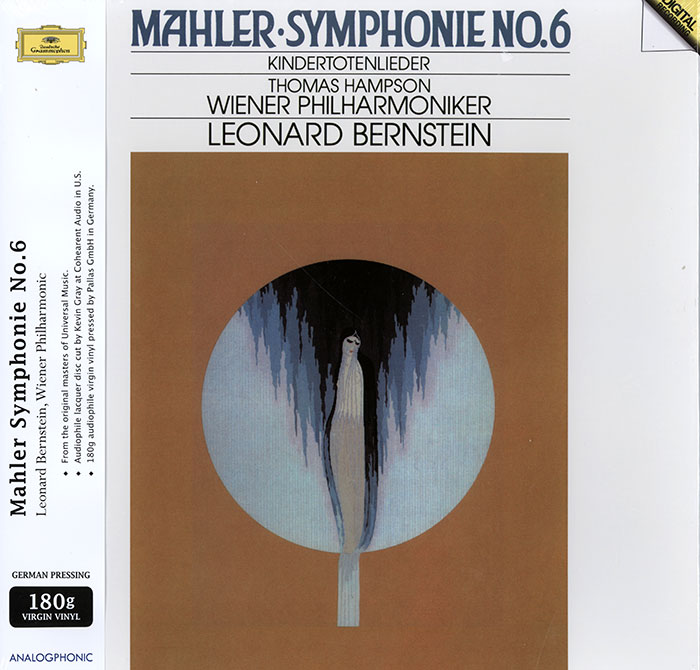Logowanie
Dlaczego wszystkjie inne nie brzmią tak jak te?
Chai Lang, Fan Tao, Broadcasting Chinese Orchestra
Illusive Butterfly
Butterly - motyl - to sekret i tajemnica muzyki chińskiej.
SpeakersCorner - OSTATNIE!!!!
RAVEL, DEBUSSY, Paul Paray, Detroit Symphony Orchestra
Prelude a l'Apres-midi d'un faune / Petite Suite / Valses nobles et sentimentales / Le Tombeau de Couperin
Samozapłon gwarantowany - Himalaje sztuki audiofilskiej
PROKOFIEV, Stanislaw Skrowaczewski, Minneapolis Symphony Orchestra
Romeo and Juliet
Stanisław Skrowaczewski,
✟ 22-02-2017
BARTOK, Antal Dorati, Philharmonia Hungarica
Dance Suite / Two Portraits / Two Excerpts From 'Mikrokosmos'
Samozapłon gwarantowany - Himalaje sztuki audiofilskiej
ENESCU, LISZT, Antal Dorati, The London Symphony Orchestra
Two Roumanian Rhapsodies / Hungarian Rhapsody Nos. 2 & 3
Samozapłon gwarantowany - Himalaje sztuki audiofilskiej
Winylowy niezbędnik
ClearAudio
Cartridge Alignment Gauge - uniwersalny przyrząd do ustawiania geometrii wkładki i ramienia
Jedyny na rynku, tak wszechstronny i właściwy do każdego typu gramofonu!
ClearAudio
Harmo-nicer - nie tylko mata gramofonowa
Najlepsze rozwiązania leżą tuż obok
IDEALNA MATA ANTYPOŚLIZGOWA I ANTYWIBRACYJNA.
Wzorcowe
Carmen Gomes
Celebrating the art and spirit of music - vol. 5 - Reference Songs
- CHCECIE TO WIERZCIE, CHCECIE - NIE WIERZCIE, ALE TO NIE JEST ZŁUDZENIE!!!
Petra Rosa, Eddie C.
Celebrating the art and spirit of music - vol. 3 - Pure
warm sophisticated voice...
SAMPLER - STS DIGITAL, Gregor Hamilton
Celebrating the art and spirit of music - vol. 2 - Love songs from Gregor Hamilton
...jak opanować serca bicie?...
SAMPLER - STS DIGITAL
Celebrating the art and spirit of music - vol. 1 - Leonardo Amuedo
Największy romans sopranu z głębokim basem... wiosennym
Lils Mackintosh
Celebrating the art and spirit of music - vol. 4 - A Tribute to Billie Holiday
Uczennica godna swej Mistrzyni
MAHLER, Thomas Hampson, Leonard Bernstein, Vienna Philharmonic
Symphony No. 6 / Kindertotenlieder
- Thomas Hampson - baritone
- Leonard Bernstein - conductor
- Vienna Philharmonic - orchestra
- MAHLER
EKSKLUZYWNA EDYCJA KOLEKCJONERSKA na rynek azjatycki.
Edycja bibliofilska i audiofilska. Nowy remastering Pięknie zapakowany Double LP Box Set Despite the shibboleth that Bernstein radically changed as a conductor in his old age, many of his Mahler interpretations stayed basically the same between the first cycle from New York in the Sixties and the one twenty years later from Europe. That's not the case here, however. There are very big differences between his 1967 reading - a bargain on a single mid-price Sony CD, and his Vienna 1988 version, on two full-priced CDs with the Kindertotenlieder as a filler. Sound: The New York Philharmonic is caught in totally clear sonics from Avery Fisher Hall. Inner detail is nicely captured, and the orchestral balance is natural. But we are in a different league with DG's digital recording from a live performance in Vienna's Musikverein, where the sonics have incredible urgency and impact. Orchestra: The New York Philharmonic plays beautifully (although calling them the world's Mahler orchestra is silly). Yet the Vienna Philharmonic, even in a live setting, play with incomparable accuracy, power, sweetness, and style. Interpretation: Bernstein in New York is fast enough in the first movement to be called brisk, which leaves no breathing room for the immense inner detail Mahler provides. Bernstein slows down by two minutes in Vienna, which is all to the good. He also slows down by two minutes in the Scherzo and the Andante - played in that order. They are also more expressive given a bit more leisure. But it's the last movement, which went from being one of the fastest on CD at 28 minutes to the absolute slowest at 33 minutes, where the greatest improvement occurs. Here Bernstein creates a complete world, full of magical colour and haunting details. It becomes almost a symphony in itself--no music lover should pass up the experience of hearing it. By comparison the whole of Bernstein's earlier effort is eclipsed; it is even a bit literal, contrary to those reviewers who call it excessive. In sum, Bernstein's Vienna Sixth is one of a kind, a must buy. If you want a single disc version, the recent Abbado on DG from Berlin is more exciting, brilliantly played, and imaginative than the New York reading from Bernstein. As to the Kindertotenlieder filler, also from Vienna in 1988, the young Thomas Hampson can't rival his female counterparts - Christa Ludwig, Janet Baker and Kathleen Ferrier - but he has far more warmth and emotional impact than Fischer-Dieskau, his closest rival among the men. Bernstein conducts extremely well, but he did the same in his two earlier versions with Jennie Tourel and Janet Baker. All three are worth owning and treasuring. Rating 5 stars out of 5 Huntley Dent
























